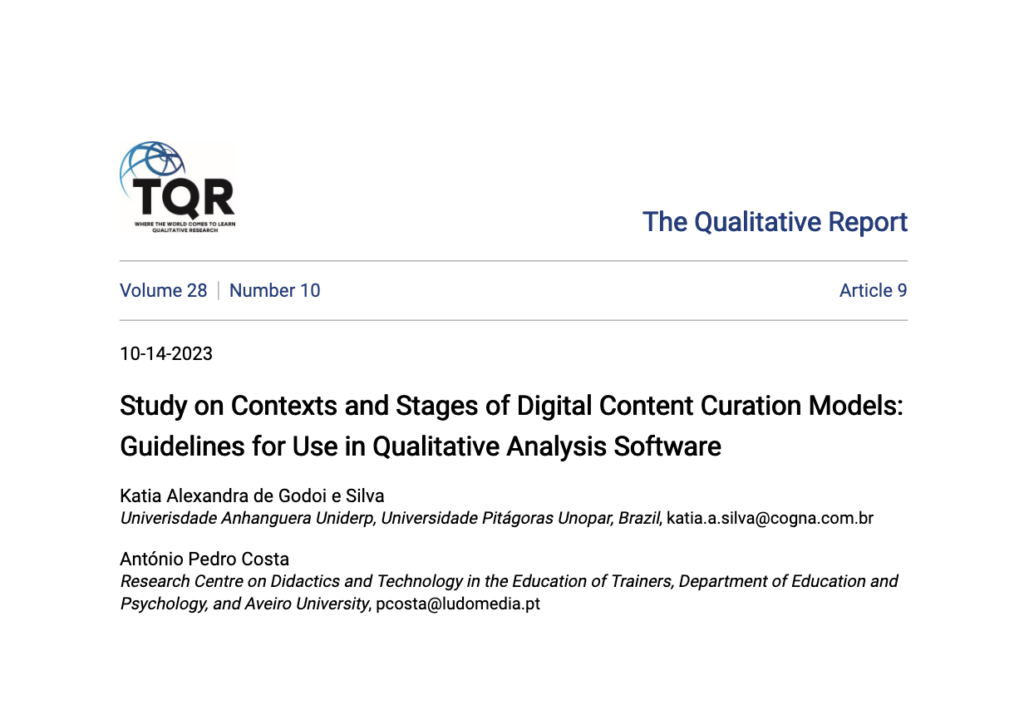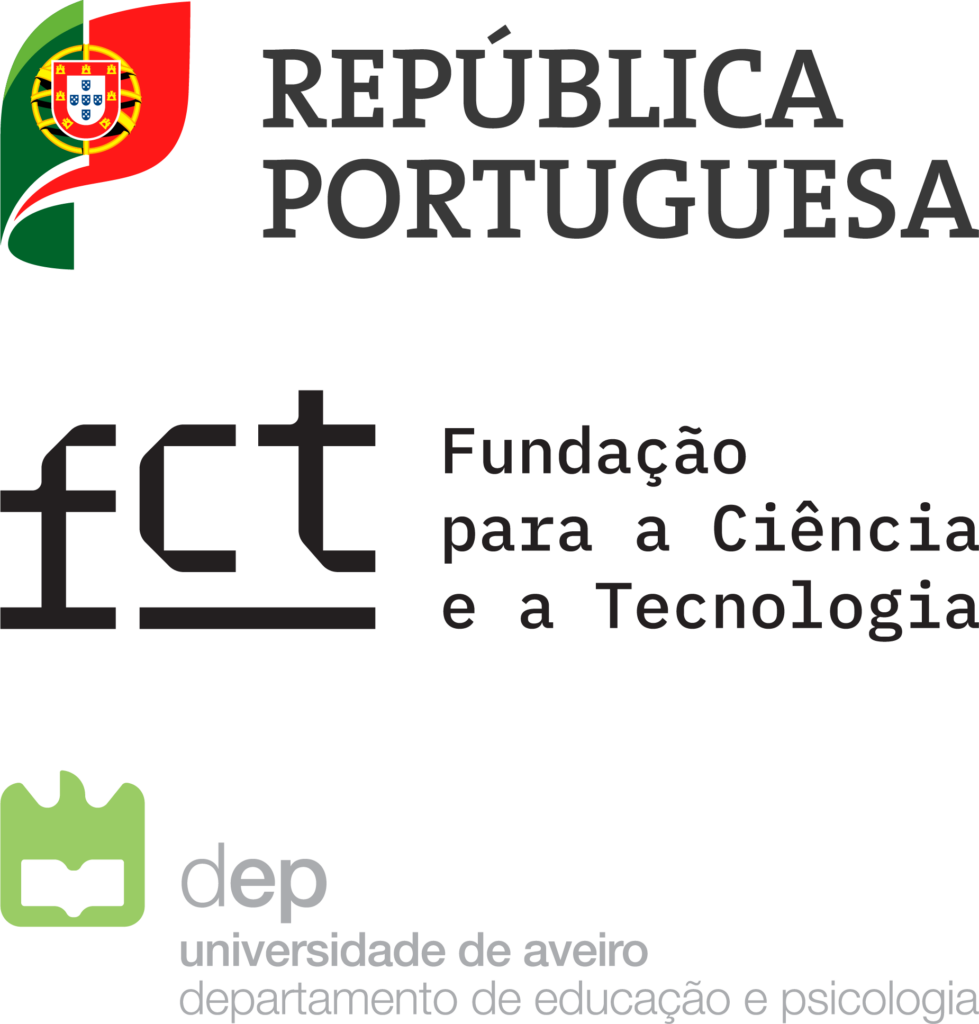Katia Alexandra de Godoi e Silva & António Pedro Costa (CIDTFF) | The Qualitative Report, 28(10), pp. 2980-2994
Abstract:
Researchers have shown interest in using software in scientific investigations, expanding literature review strategies in the organization, collection, analysis, and data triangulation. These aspects revealed possibilities for discussions related to digital content curation in Computer-Assisted Qualitative Data Analysis Software (CAQDAS). The choice and organization of qualitative data in scientific research are affected by this complexity of information, which involves planning, contextualization, and ethical dilemmas of sharing, among other aspects that permeate the investigations. Thus, this study aims to contribute to the reflection and analysis of models of digital content curation that can be used in CAQDAS. A qualitative descriptive methodology was used to achieve this goal, made possible by a critical literature review of scientific works about digital content curation. It was based on searches in two academic databases (Scientific Electronic Library Online – SciELO – and Scopus) and two gray literature databases. As a result, few digital content curation models with similar stages are employed in different contexts, and that some authors are interested in reflecting on such models. It was also found that the digital content curation models can be redefined and explored based on specific guidelines that consider the context of the organization of qualitative data in CAQDAS.
– – – – –
Referência:
Silva, K. A., & Costa, A. P. (2023). Study on Contexts and Stages of Digital Content Curation Models: Guidelines for Use in Qualitative Analysis Software. The Qualitative Report, 28(10), 2980-2994. https://doi.org/10.46743/2160-3715/2023.6684





